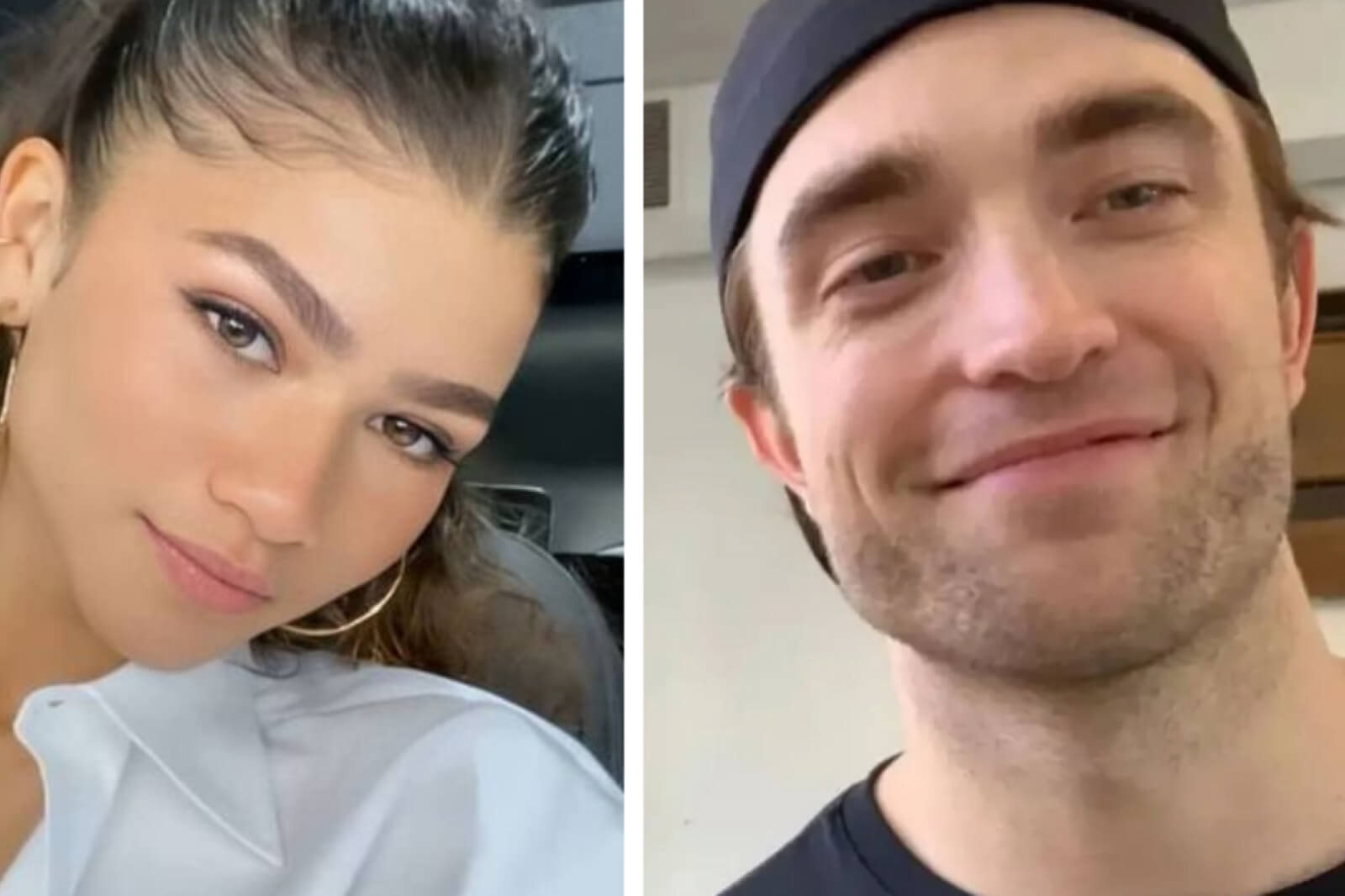
Photo by Nina Westervelt/Shutterstock
Face tattoos have a pretty bad rap.
We love to make fun of them, laughing at the knowledge that there are people out there who are going to be stuck with a garish numerical figure on their foreheads or a phrase like “Always Tired” under their eyes for the rest of their lives.
On the other hand, tattoos in general have always received harsh criticism. Though every millennial seems to have at least a few fine-line arm tattoos nowadays, all over the world and in many faiths, tattoos are sacrilegious, evidence of Satan’s corrupting influence or its many iterations. Thus, tattoos have always been mechanisms of subversion and counterculture, whether as markers of membership in certain groups, or monikers of individuality, or signifiers of devotion to a certain kind of art or person. They’ve been ways of reclaiming or altering one’s physical appearance, ways of taking ownership of a body that, all too often, capitalism and the media try to devour or force to align with some standard.
Are face tattoos that different? Certainly that devil-may-care, f*ck-the-man attitude is what many bearers of face tattoos want to project; their images are intended to enrage and provoke, to shock and entertain, or simply to deviate from the norm.
I’m not telling you to get a face tattoo during your next drunken night out (please don’t). And truthfully, I would never get a face tattoo, mainly because I’m too indecisive but also because I plan on reinventing myself entirely every few years and/or pulling a Gone Girl at least once in my life. But if you’re deeply committed to your aesthetic or persona, and if you can envision getting old with whatever your emblem or image of choice may be, I respect that choice.
Like it or not, face tattoos are here. While over the past decade they have grown in prominence among a certain subculture of rappers who are based on a specific, unnamed social media platform, they’re definitely not a new phenomenon, and they have a long and complex history.
Face Tattoos in History
The widespread stigmatization of face tattoos may be ingrained in our collective consciousness from ancient Greek and Roman times, when convicts and prisoners used to be marked with facial brandings that signified their crimes.
Face tattoos hold various purposes among groups like New Zealand’s indigenous Maori, who often use facial scarification and ink work as a way of symbolizing faith or mourning. (Mike Tyson later provoked ire when he showed up with his famous tribal-style face tattoo, provoking cries of appropriation).
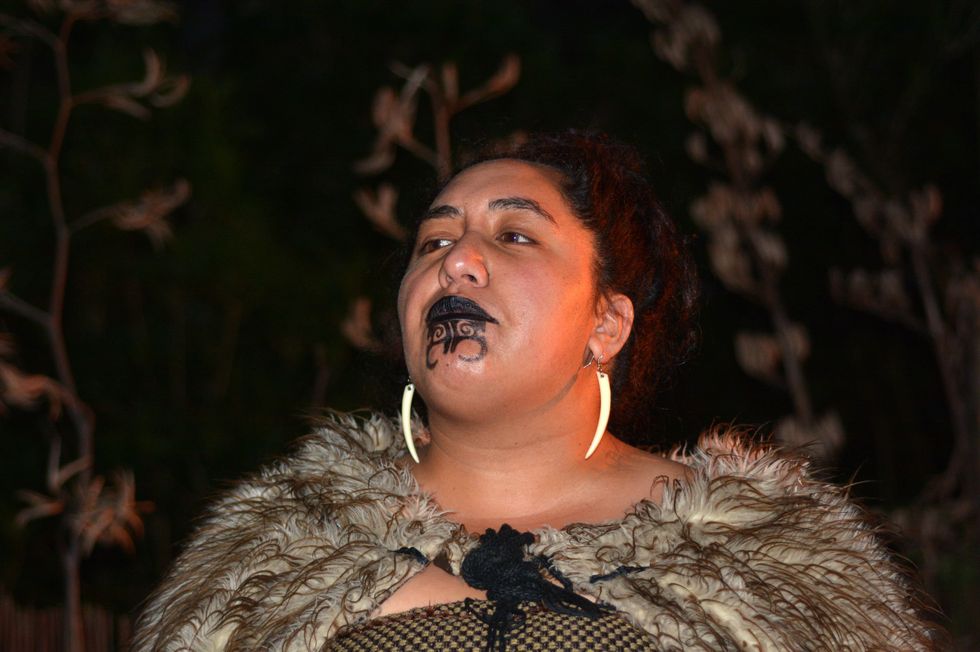
Around the 1900s, tattoos as we know them today began to rise in prominence, and lower working-class groups like punks and sex workers began using heavy facial ink work as markers of self-expression. According to the photographer Derek Ridgers, who took a lot of photos of heavily tatted punks and club kids in the UK in the 20th century, face tattoos in particular are ways of shouting, “I know I’m never going to be a conventional member of the society like you, and I don’t want to be.”
In the 1980s, face tattoos became extremely popular among gang members, especially in American cities like Los Angeles. Tattoos became markers of undying loyalty, though typically gang members wouldn’t be allowed to get face tattoos unless they also had their entire bodies inked—to earn the right to a facial inscription, you had to have gone past the point of no return.
Even today, many artists will refuse to do face tattoos unless you’ve earned it; as one tattoo artist told The New York Times, face tattoos are “a rite of passage.”
Face Tattoos in Practice
Around the turn of the century, Wiz Khalifa, Birdman, and “human canvas” Lil Wayne broke onto the music scene wearing heavily inked visages. But face tattoos have experienced a kind of explosion over the past decade, as thousands of unsigned SoundCloud mumblecore rappers and social media stars fight for social media clout by using face tattoos as ways to shape images for themselves by marking their commitment to their craft, faith, or individuality.
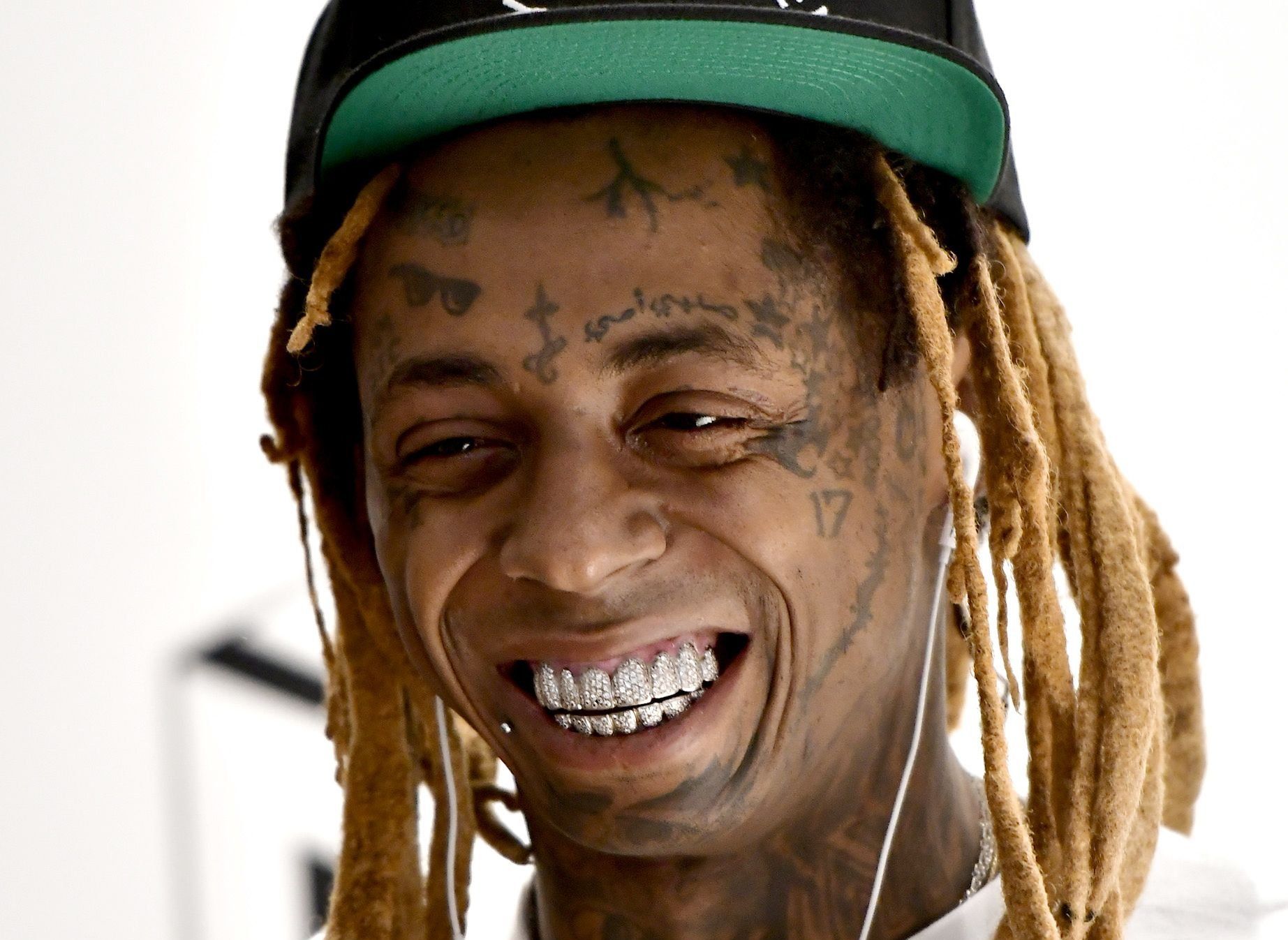
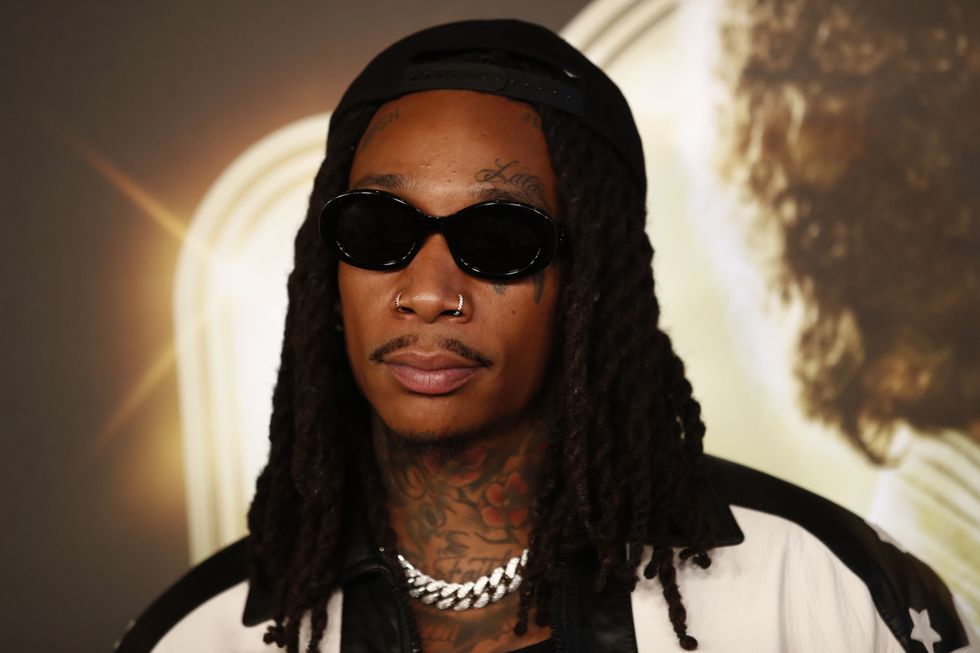
Makeup model Kat Von D has a collection of stars on the side of her face.
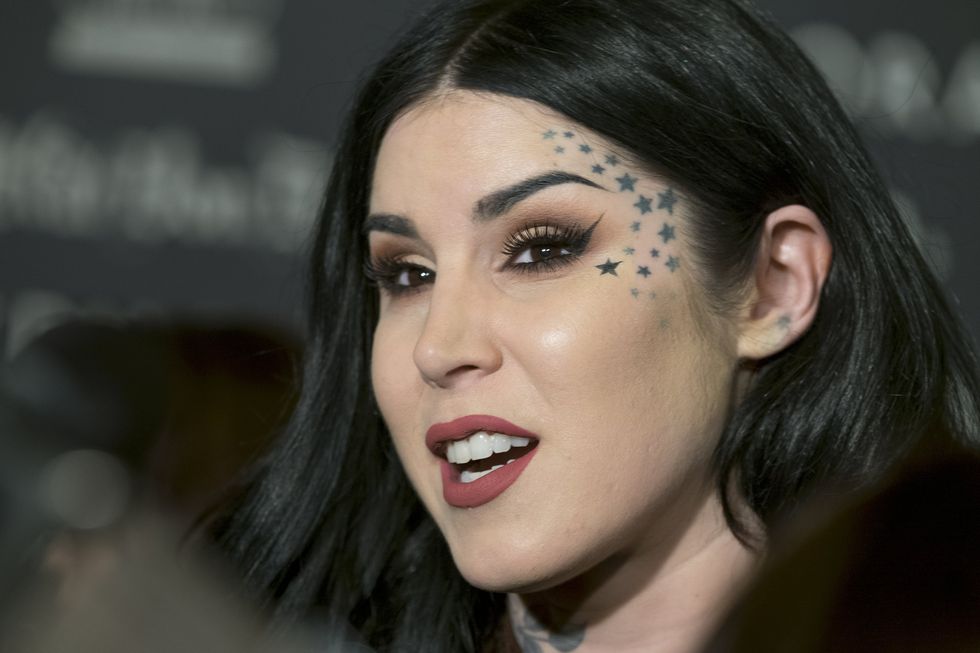
Kehlani has the words “Espíritu Libre,” or “Free Spirit,” under her eye, among others.
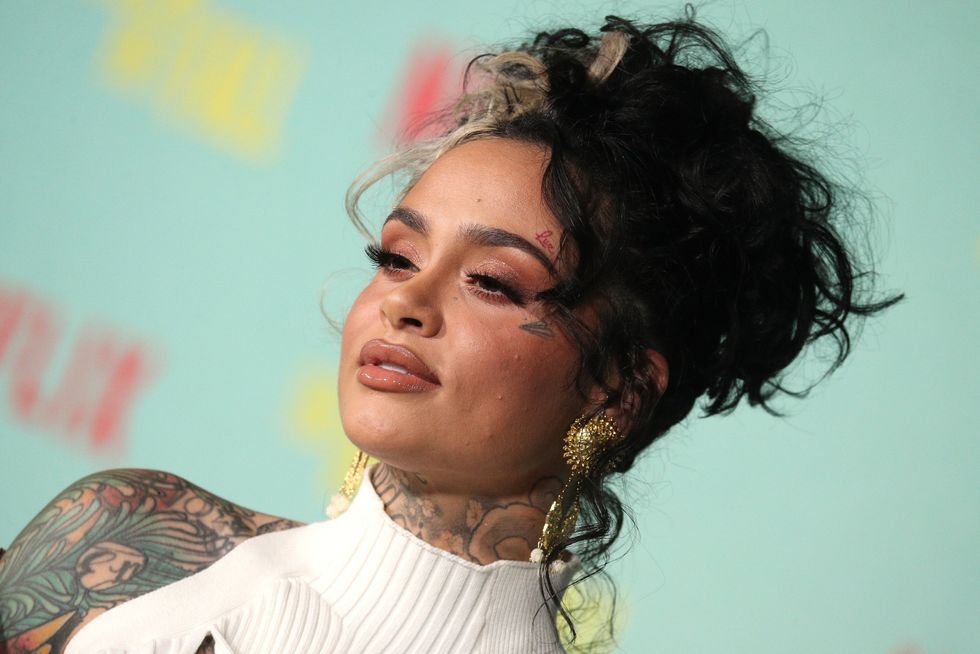
Lil Uzi Vert is covered in tats, too, which he once said were intended to make him “unemployable.”
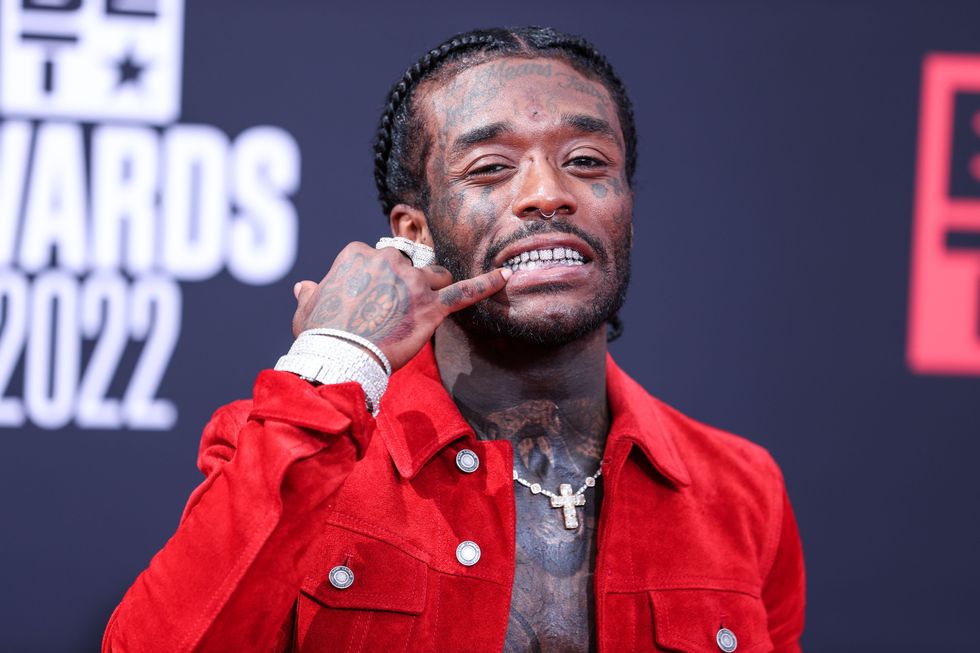
While those tattoos are probably more manifestations of internal instability than proclamations of identity and individuality, some face tattoos are powerful expressions of self. Others are just funny. Among the most famous mainstream acts with face tattoos is Post Malone, whose ink reads, among other messages, “Always Tired” and “Stay Away.” He once explained that these tattoos are meant to p-ss off his mom. In the end, Posty wouldn’t be Posty without his face tats, and they’re pretty funny and lighthearted extensions of his already chaotic image.
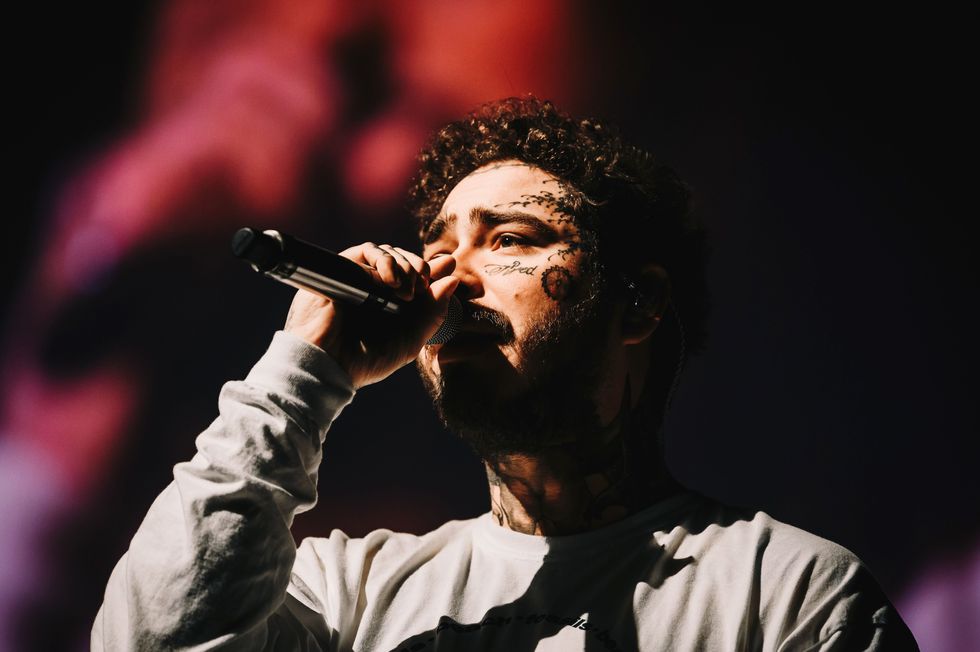
The late rapper Lil Peep had a collection of face tattoos which were, arguably, inextricable from his persona. One of them bore the words “die young,” and, as we know, Peep died at 21. After his passing, many of his friends got face tattoos in his honor. Sometimes face tattoos can be stand-ins for so much more.
Face Tattoos in Theory
At risk of reading too deeply into all this, I’d further argue that face tattoos as we know them today tend to correspond to some level of internal turmoil. Perhaps today’s face tattoos are ways of acknowledging the validity of the inner emotions that plague so many of us but that we so often suppress—such as the perpetual exhaustion that comes from being alive, intertwined with the desire to withdraw into oneself and to hide within one’s image or one’s art, tangled up with the desire to take nothing seriously while also wholly committing to one’s image and performative persona at the most radical and self-serious level.
Though we should be aware of their history, implications, and the double standards that exist in terms of who can have face tattoos and when, I’m not sure we should be so quick to demonize all face tattoos. The idea that all humans should look the same or align their bodies with some standard of “purity” contains the seeds of a eugenic sentiment, or at least a seriously puritanical one. And of course, feeling that all people should look the same way is only a stone’s throw from the Orwellian concept that all people should think the same way, and we all know where that leads.
On the other hand, the idea that face tattoos symbolize a “correct” kind of freedom and individuality is also not an accurate summation. Obviously, we don’t all have to love face tattoos, as they (and ink in general) do go against the values of some religions, cultures, or individual opinions. When they’re used for clout or pure aesthetic, and especially when people with no connection to specific communities appropriate imagery, face tattoos are disrespectful at best, point-blank. Furthermore, tattoos that exist on bodies of color (and on Black men in particular) have typically been associated with criminality and danger, whereas white people—especially those with cushions of wealth to fall back on—usually tend to be able to get away with appropriating the aesthetics of these tattoos without actually facing the consequences.
In the end, maybe face tattoos aren’t all good or bad. Perhaps their value is situational, reliant on the observer, the person wearing them, and the context and implications of their design. Though in all likelihood, at this point, any self-respecting owner of a face tattoo would’ve told me to go f*ck myself.
- Justin Bieber Got a Face Tattoo and Post Malone is gross – Popdust ›
- Think Before You Ink! Horrendous Bad Face Tattoos Gallery – Popdust ›
- Rick Ross Just Got A Ridiculous Face Tattoo, Because Of Course … ›
- Best Of The Worst Terrible Tragic And Utterly Awful Fan Tattoos … ›
- The 7 Most Tatted Rappers – Popdust ›
- 29 Hilariously Awful Face Tattoos. What Were They Thinking? – Offbeat ›
- Aaron Carter Debuts Massive Face Tattoo | PEOPLE.com ›
- Aaron Carter’s Face Tattoo Artist Tried to Talk Him Out of It ›
- 33 Ugly Face Tattoos That Anyone With a Brain Would Regret ›
- Are Face Tattoos Worth it? | Tattoo Artists Answer – YouTube ›
- Aaron Carter’s face tattoo artist says he tried to talk singer out of it … ›
- #facetattoos hashtag on Instagram • Photos and Videos ›
- How face tattoos took over SoundCloud, Instagram, and YouTube … ›
- Face Tattoos Go Mainstream – The New York Times ›













